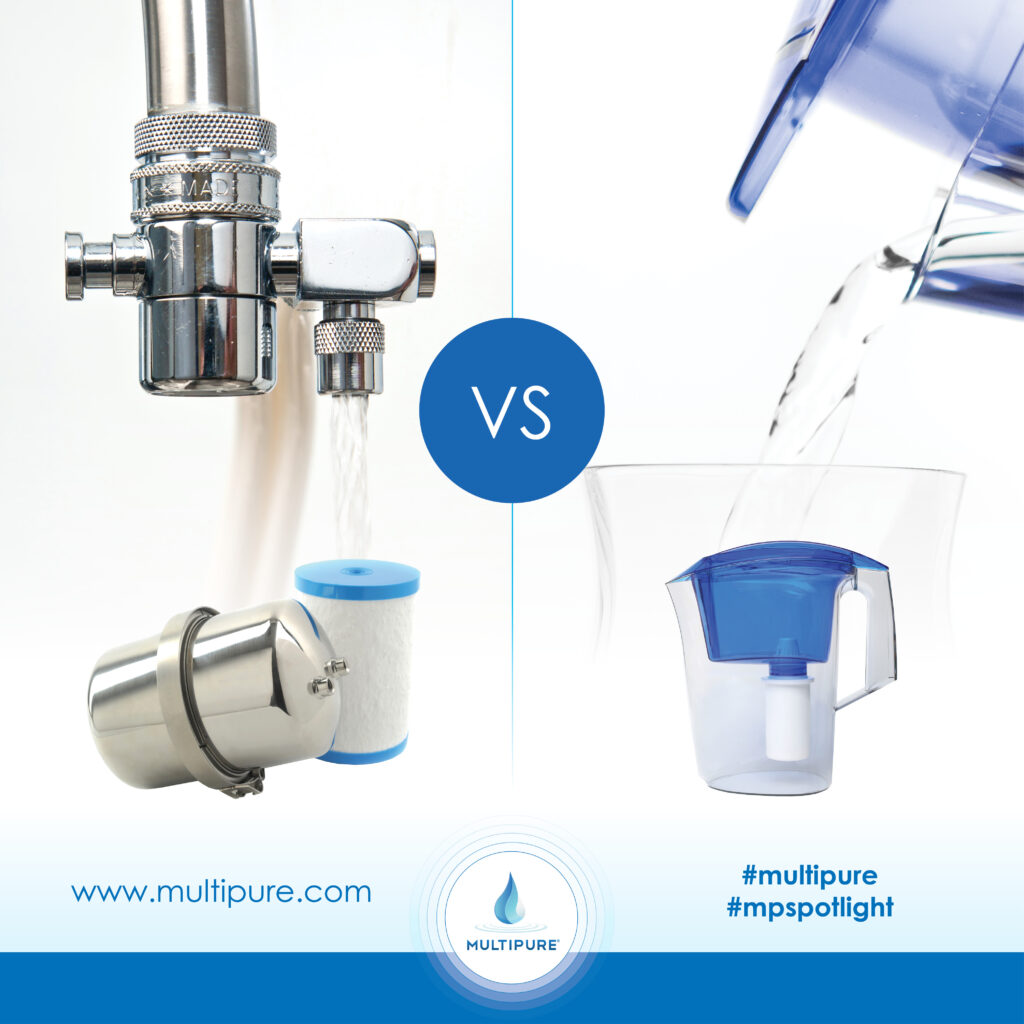Staying hydrated is crucial for our well-being, but the quality of our tap water can vary greatly. Many people choose to filter their water to improve taste, remove impurities, and ensure a healthier drinking experience. Two popular options for home water filtration are pitcher filters and faucet filters. Each offers distinct advantages and disadvantages, making the choice between them a matter of personal preference and individual needs. This article will delve into the key differences between pitcher filter vs faucet filter, exploring their respective benefits, filtration capacities, ease of installation, and ultimately helping you determine the best fit for your household.
Pitcher Filters vs. Faucet Filters
Pitcher filters and faucet filters both effectively remove common water contaminants like chlorine, sediment, and some heavy metals, resulting in cleaner, tastier water. However, they differ significantly in their design, functionality, and overall user experience. Pitcher filters are standalone units that you fill with tap water, allowing it to pass through a filter cartridge before dispensing filtered water. Faucet filters, on the other hand, attach directly to your existing faucet, providing filtered water on demand without the need for refilling.
Pitcher Filter Benefits

One of the primary advantages of pitcher filters is their affordability. They are generally less expensive to purchase upfront compared to faucet filter systems. Additionally, pitcher filters are highly portable. You can easily move them around your home, taking filtered water wherever you need it. This makes them a convenient option for smaller households or individuals who don’t require a constant supply of filtered water.
Another benefit of pitcher filters is their simplicity. They are generally easy to use and maintain. Most pitcher filters require you to simply fill the pitcher with water, allow it to filter, and then pour the filtered water into a glass. Replacing the filter cartridge is also a straightforward process, typically involving unscrewing the old cartridge and inserting a new one.
Faucet Filter Benefits
Faucet filters offer several advantages over pitcher filter systems. The most notable benefit is the convenience of having filtered water readily available on demand. Simply turn on the faucet, and you have access to clean, filtered water without the need to refill a pitcher or wait for the filtration process to complete.
Faucet filters also tend to have a higher filtration capacity compared to pitcher filters. This means they can filter a larger volume of water before requiring a filter cartridge replacement. This can be particularly beneficial for larger households or individuals who consume a significant amount of filtered water daily.
Filtration Capacity

The filtration capacity of a water filter refers to the amount of water it can effectively filter before the filter cartridge needs to be replaced. Pitcher filter cartridges typically have a lower filtration capacity, ranging from 40 to 100 gallons, depending on the specific model. Faucet filter cartridges, on the other hand, often have a higher filtration capacity, ranging from 100 to 300 gallons or even more.
The filtration capacity you need will depend on your household’s water consumption habits. If you have a small household or only occasionally filter water, a pitcher filter with a lower capacity may be sufficient. However, if you have a larger family or frequently use filtered water, a faucet filter with a higher capacity will be more practical.
Installation and Ease of Use
Pitcher filters are incredibly easy to install and use. Simply fill the pitcher with tap water, allow it to filter, and pour the filtered water into a glass. Replacing the filter cartridge is also a straightforward process.
Faucet filters, while generally user-friendly, do require a slightly more involved installation process. Most faucet filter systems attach directly to your existing faucet using a threaded adapter. This may involve some minor plumbing adjustments, depending on your faucet type. However, most faucet filter systems come with clear instructions and necessary tools to facilitate the installation process.
Conclusion
Choosing between a pitcher filter and a faucet filter ultimately depends on your individual needs and preferences. Pitcher filters are a budget-friendly and portable option, ideal for smaller households or occasional use. Faucet filters, on the other hand, offer the convenience of on-demand filtered water and a higher filtration capacity, making them a suitable choice for larger families or frequent users. By carefully considering factors such as filtration capacity, ease of installation, and budget, you can select the water filtration system that best meets your requirements and ensures access to clean, refreshing water for you and your loved ones.



